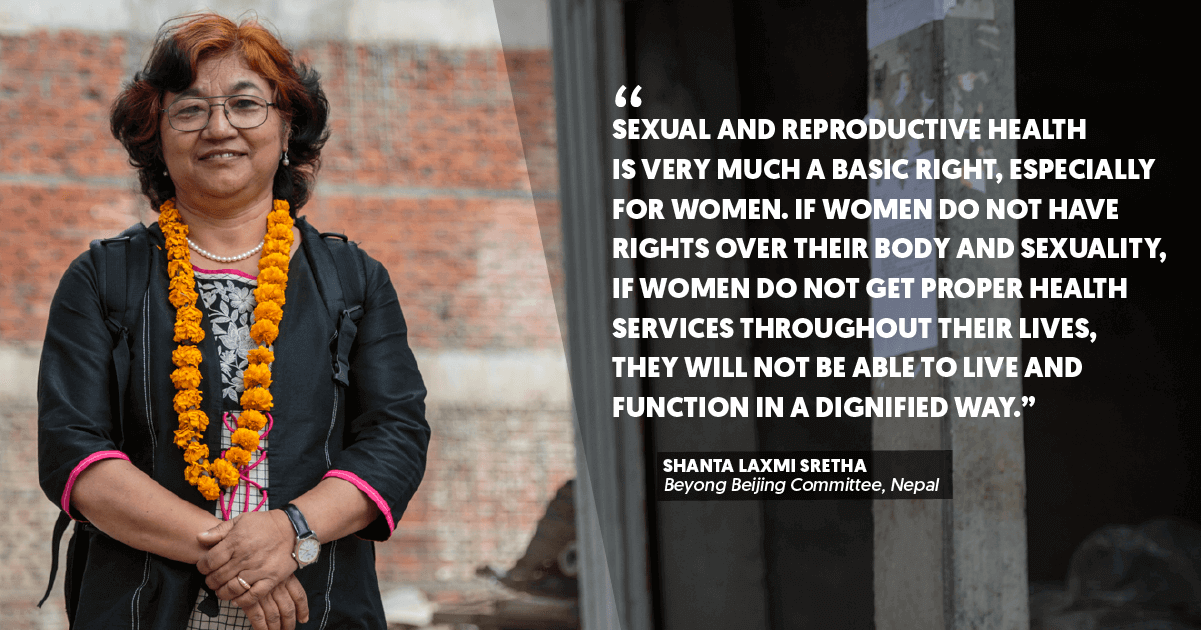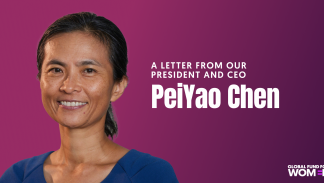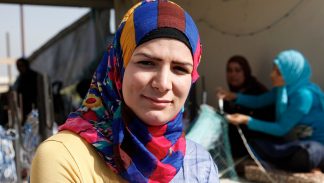Demanding Reproductive Rights on International Safe Abortion Day
On September 28, International Safe Abortion Day, we join activists, sister organizations, and women and girls around the world to demand that safe, legal abortion be available to all women, girls, and gender non-conforming people. Women’s sexual health and reproductive rights are under attack by conservative governments around the globe. Global Fund for Women supports feminist organizations and leaders, like those quoted below, who are resisting rollbacks and leading progressive movements to make sure that safe, legal abortion is accessible to every woman and girl.
Morena Herrera, El Salvador
“I believe that we, women, must have freedom to make decisions related to our lives and our bodies, and we must be respected by others.” –Morena Herrera, Agrupación Ciudadana por la despenalización del aborto Terapéutico , Ético y Eugenésico, El Salvador
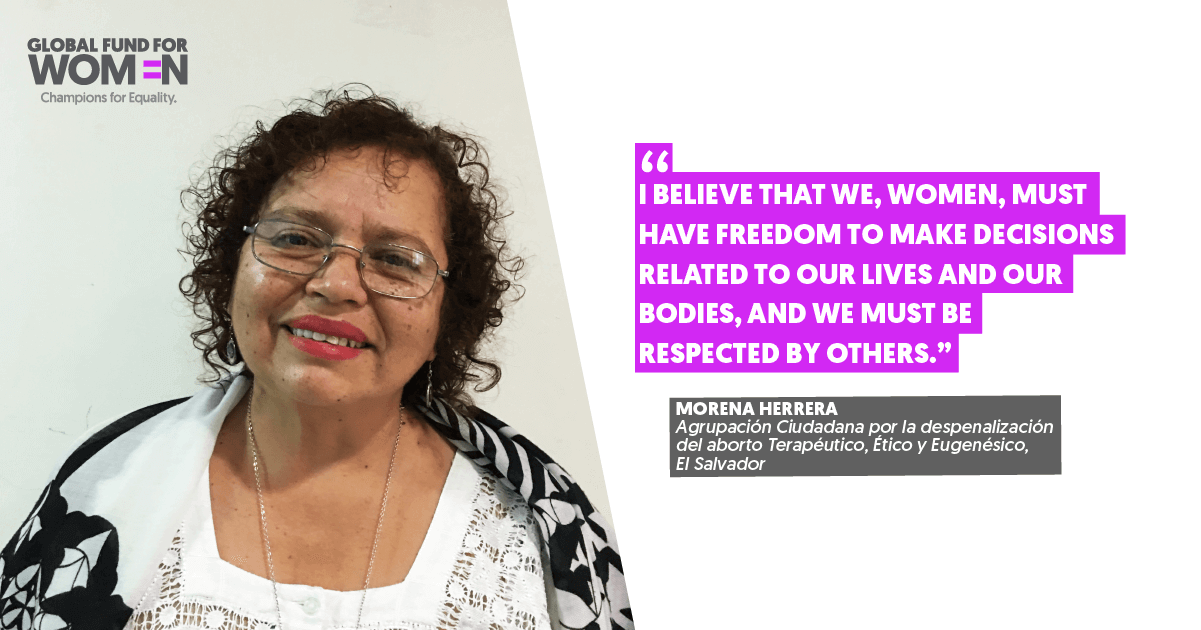
Rakshya Paudyal, Nepal
“The main tactic is to continue the advocacy and not stop.” –Rakshya Paudyal, Beyond Beijing Committee, Nepal
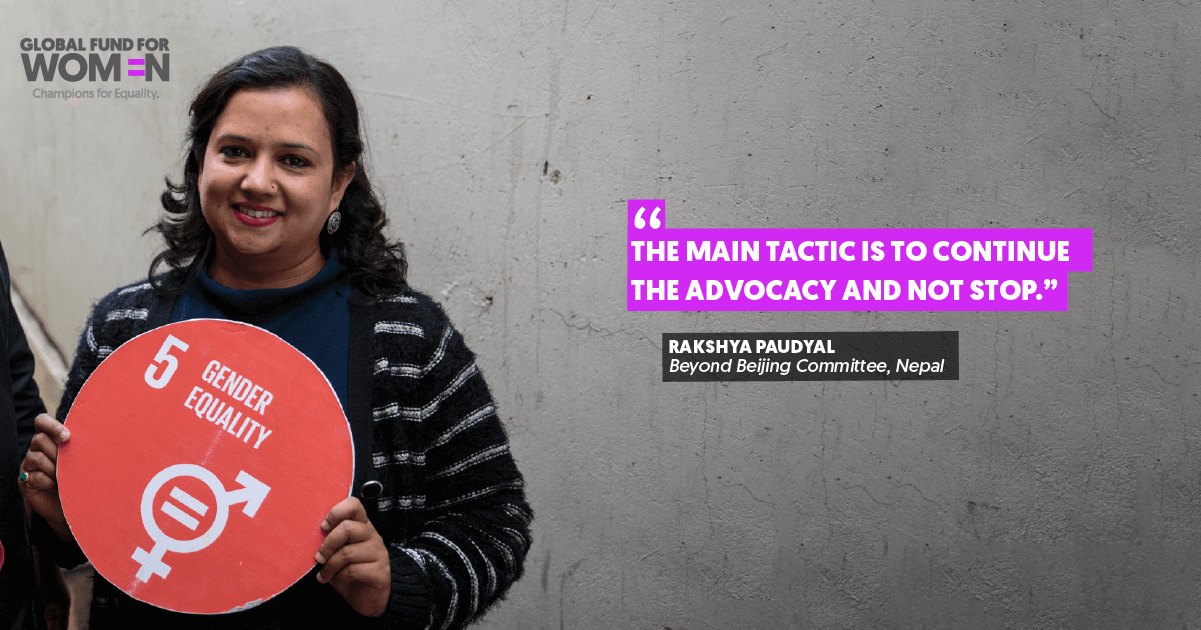
Harriet Kamashanyu, Uganda
“We simply watch many girls and women of Uganda die due to unsafe abortion. As a community initiative, it is a big gap that we still fight to close so that we don’t fail the girls and women that we serve.” Harriet Kamashanyu, Rhythm of Life, Uganda
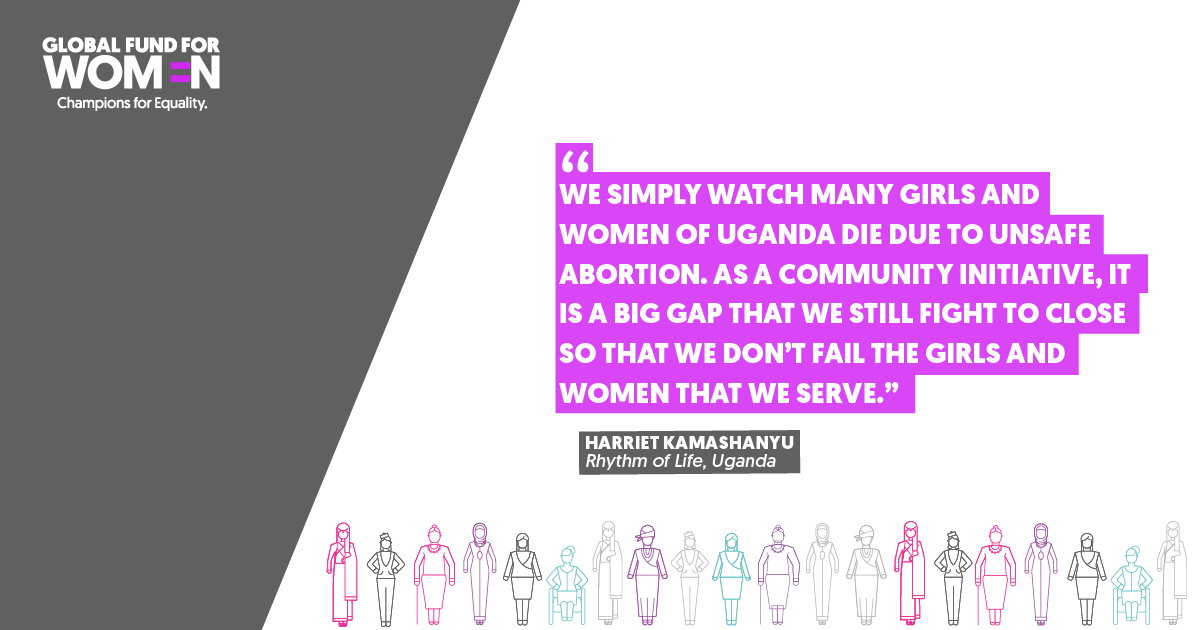
Laura Zurbiggen, Argentina
“We have to have feminist models of abortion care. We want humanized abortions, without stigma. All of this is part of safe abortion from our point of view.” –Laura Zurbiggen, Socorristas en Red, Argentina
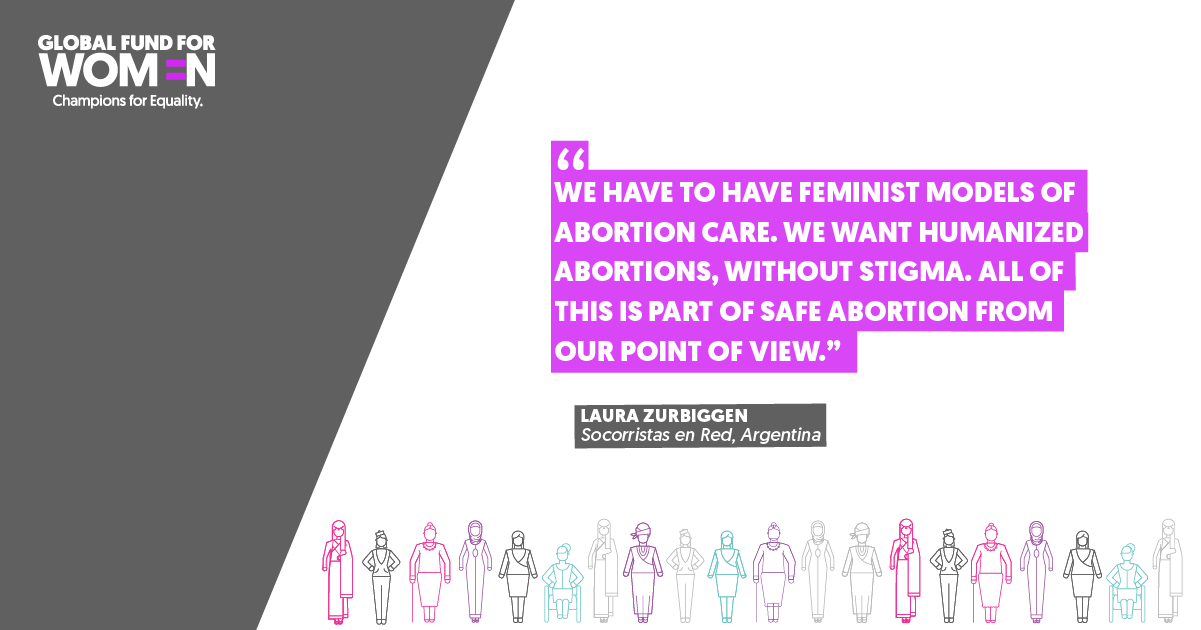
Marta Alanis, Argentina
“It’s not only about the right to safe and legal abortion, it represent all the rights of women. [The right to abortion] also signals to young girls the right to their autonomy and their right to freedom.” –Marta Alanis, Catholics for the Right to Decide, Argentina
![“It’s not only about the right to safe and legal abortion, it represent all the rights of women. [The right to abortion] also signals to young girls the right to their autonomy and their right to freedom.” –Marta Alanis, Catholics for the Right to Decide, Argentina](https://www.globalfundforwomen.org/wp-content/uploads/2019/09/abortion-quote-photos_Marta-1200x630-1-1.png)
Shanta Laxmi Sretha, Nepal
“Sexual and reproductive health is very much a basic right, especially for women. If women do not have rights over their body and sexuality, if women do not get proper health services throughout their lives, they will not be able to live and function in a dignified way.” –Shanta Laxmi Sretha, Beyong Beijing Committee, Nepal
